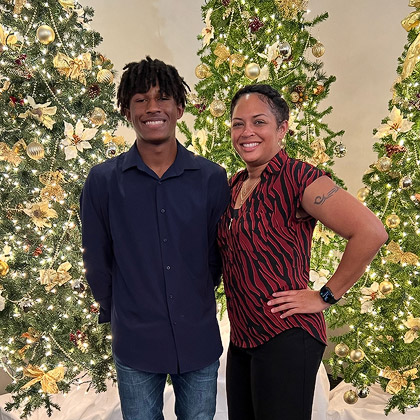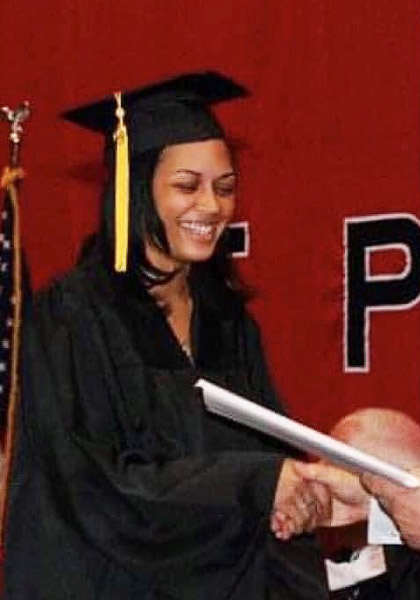January 08, 2024
My incredible experience as a Frederick Douglass Institute teaching scholar
Gabriella Locke, Ph.D.
Assistant Professor
Department of Psychology, Counseling, and Art Therapy
PennWest University
 I’ve held many titles over the last decade—student, professional, counselor, therapist,
you name it—but easily the title of mom has been the most impactful one in my life.
It contributed to my desire to pursue a career in higher education, which ultimately
led me back to PennWest University, where I am currently an assistant professor in
the Department of Psychology, Counseling, and Art Therapy. It was a long journey,
but it was worth it.
I’ve held many titles over the last decade—student, professional, counselor, therapist,
you name it—but easily the title of mom has been the most impactful one in my life.
It contributed to my desire to pursue a career in higher education, which ultimately
led me back to PennWest University, where I am currently an assistant professor in
the Department of Psychology, Counseling, and Art Therapy. It was a long journey,
but it was worth it.
My journey in higher education began at California University of Pennsylvania, where
I earned a B.S. in social work. I went on to earn an M.S. in rehabilitation counseling
from West Virginia University. While I was in the final year of my Ph.D. studies in
counselor education and supervision at Duquesne University, I was given the opportunity
to come back to PASSHE as a Frederick Douglass Institute (FDI) teaching scholar. The
program provides teaching and other professional experiences, mentoring, and potential
employment opportunities within PASSHE universities that are strongly committed to
cultural diversity.
Being a teaching scholar is demanding. There is tremendous responsibility that comes
with being a person of color in higher education, where there have historically been
broad and deep barriers to our success. I felt accountable to bring my best self to
the work because I understood that the opportunity represented something larger than
myself—the promise that limitations based on differences have no place in our contemporary
society, and that when barriers are removed, we all can achieve our inherent potential.
Put simply, scholars (and students) need to see that there are people who look like
them in higher education.
 The FDI plays a critical role in fostering inclusion for minorities through transformative
connections and community, providing pathways to meaningful careers in academia. As
such, the institute is an absolutely vital program for minority teaching scholars.
In addition, the FDI helps to foster inclusion for marginalized students by providing
some of the same benefits—transformative connections, mentoring, and support—as well
as providing resources that will help shape them into strong, positive individuals
who are successful and passionate outside of the university setting.
The FDI plays a critical role in fostering inclusion for minorities through transformative
connections and community, providing pathways to meaningful careers in academia. As
such, the institute is an absolutely vital program for minority teaching scholars.
In addition, the FDI helps to foster inclusion for marginalized students by providing
some of the same benefits—transformative connections, mentoring, and support—as well
as providing resources that will help shape them into strong, positive individuals
who are successful and passionate outside of the university setting.
I can’t emphasize enough how important the FDI is, not only to PASSHE, but also
to the world around us. This is why it’s so crucial for the institute to have the
support and resources necessary to provide services and programming.
Being a first-year professor can be overwhelming, but I had multiple layers of support,
including the FDI committee and professors in my department. Being able to turn to
so many knowledgeable individuals when I had questions or concerns was instrumental
in easing my anxiety.
I was fortunate to transition to a tenure-track position upon the conclusion of
my year as an FDI teaching scholar. I plan to resume researching my areas of interest
in collaboration with my students.
As a woman of color, I am grateful that the FDI gave me the chance to be engaged
with other professors and higher educational professionals who not only supported
my journey as a novice educator, but also valued my insights and contributions.
I plan to pay it forward. One of my biggest goals is to dismantle systemic barriers
that hinder individuals with minority backgrounds from pursuing graduate school in
general, empowering and advocating for them to continue their journeys, and more specifically,
to increase diversity in the field of counseling.